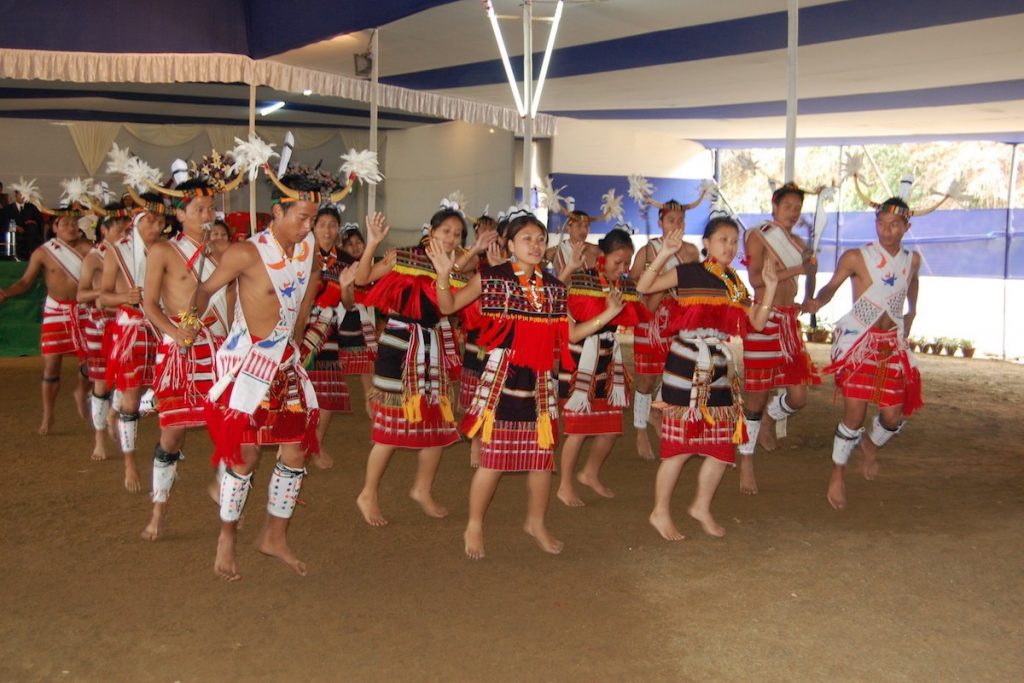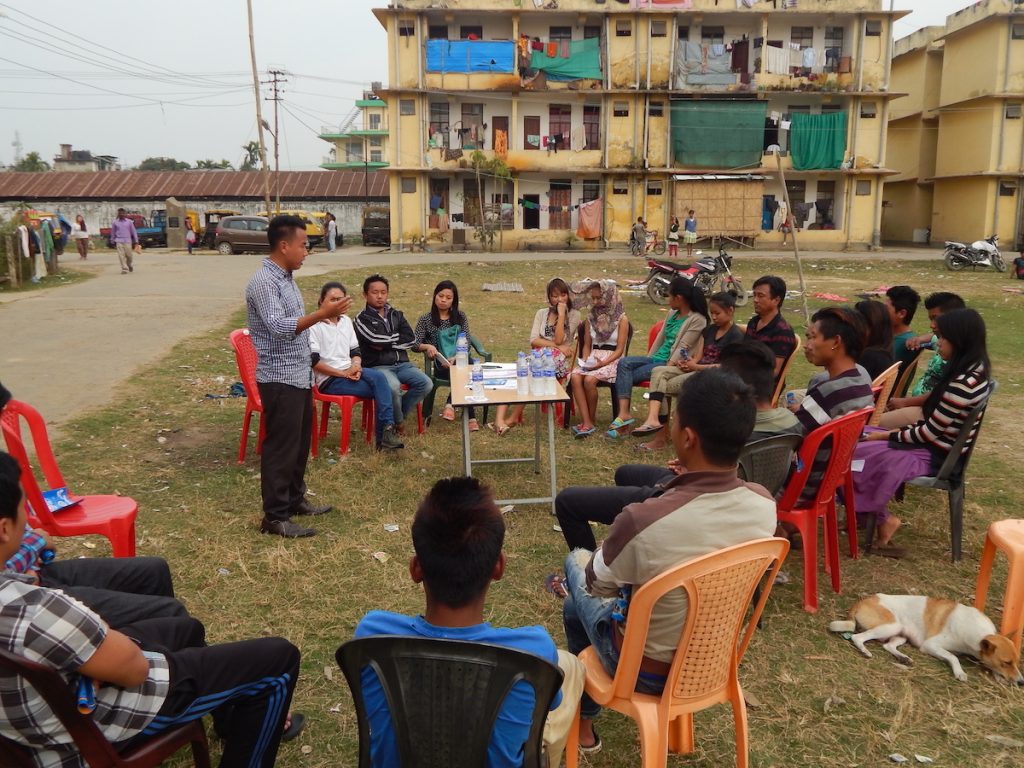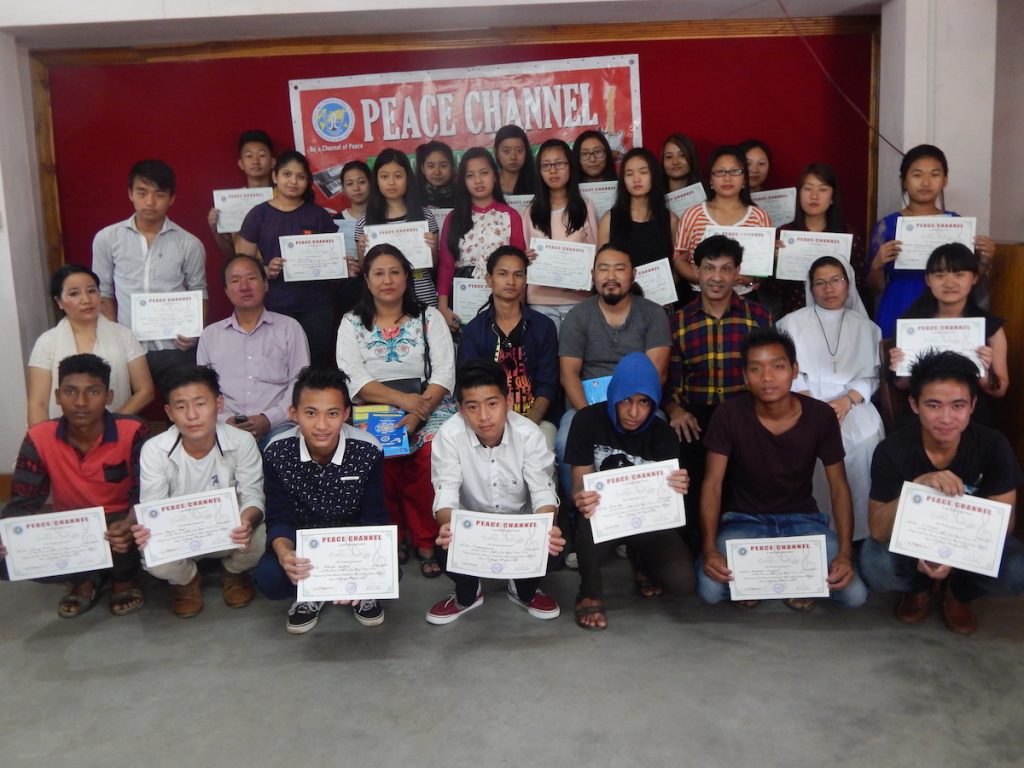
Two decades ago a young novice had a harrowing experience when he was posted to a Jesuit institution at Kiphire town in Nagaland, a north-eastern state of India.
The November 1997 incident included a group of six armed separatist insurgents who entered the Loyola School campus and held the then principal and vice principal at gun point while demanding ransom. The novice, C P Anto, pleaded with them and sought some time to speak to their superiors.
After much haranguing the insurgents left without harming anyone, but the incident hit the young regent hard. It kept haunting him even after he became a priest.
From this, Father C P Anto, now a Catholic missionary in Nagaland’s Kohima Diocese, launched what would be called the “Peace Channel” to create spaces for dialogue within civil societies in the troubled northeast region that has the population of over 45 million people.
The region comprises eight states — Arunachal Pradesh, Assam, Manipur, Meghalaya, Mizoram, Nagaland, Tripura and Sikkim. It’s wedged between Bhutan, Bangladesh, Myanmar and China. Insurgency and ethnic strife have retarded its progress and economic activity.
Major conflicts over separate identities and homelands have long plagued the region. Insurgent groups routinely extort money from people and kidnappings are frequent.
In such a scenario, building sustainable peace processes is the only way forward, felt Father Anto, who has received awards for promoting peace at the grass roots level.
In 2005, he launched the Peace Channel aimed at transforming individuals into “peace lovers, peacemakers and peace promoters” thus leading people from a culture of violence to a culture of peace.
The now 25,000-strong youth peace movement focuses primarily on mobilizing youngsters, irrespective of caste or creed, in educational institutions and localities into Peace Clubs to ensure peace and harmony in their neighborhoods, said Father Anto.
Peace Clubs facilitate training and capacity building programs for its members and keeps them connected through a host of district and state level programs and cultural exchanges, he said.

Garrol Lotha, a Peace Channel coordinator, said the youth have to be the catalyst of change wherever they are. “So, we have peer mediation where students of the same age-group resolve disputes between two people or small groups,” Lotha said.
The youth are also taught how they can intervene, be it issues related to social media, domestic violence, relationship difficulties/harassment, cheating and stealing, gang fights, racial and cultural confrontations, vandalism, bullying, minor assaults or quarrelling, she said.
To help promote Peace Channel’s message, Lotha said they set up ‘The Peace Band’ — a team of musicians and performers who travel around Nagaland performing concerts and street plays.
Lotha said there is also an annual Youth Peace Festival and Peace Rally that brings together thousands of youth in sharing ideas and culture. Interfaith consultations and state-level seminars are also held, said Lotha.
Peace Channel also rewards those who have contributed towards peace promotion and peace education in Nagaland, said Father Anto, who is also the founder-principal of North East Institute of Social Sciences and Research, the first institute in India to deal with Peace and Conflict Transformation studies.
Seno Tsuhah, who was given an award by Peace Channel for her contributions to women rights, natural resource management and sustainable living, said “women empowerment sows the seeds of peace”.
“Peace processes are highly complex with divergent interests, actors and emotions in play made even more difficult due to the overarching factor of violence but peace initiatives like this offer the promise of ending violent ethnic conflicts,” she said.
Mhonbemo M Kikon, a student at St. Clare Higher Secondary School, Kacharigaon in Dimapur, said: “Peace Channel is a place where strangers become friends for life.”
“Through Peace Club I learned that peace always begins with the self and then transmits to others by following certain universal values and principles,” he said.

Rijuwana Begum, a student of Neingulie Memorial High School, Dimapur said his three years of experience in Peace Club was wonderful.
“I was an angry and rebellious person but after joining Peace Club I learnt the value of peace,” he said. “I have learned to channel my anger in a positive way. Every time I felt angry I would meditate and calm myself. I am now more open to learning new things, more confident and outspoken.”
Amachon Ramror, pursuing her final year of graduation from Don Bosco College in the state, said her seniors inspired her to join Peace Club.
“I learnt how to resolve personal conflicts and how to use the tools of mediation that could bring a peaceful solution to the disputes we face,” she said.
Father Anto said that in collaboration with other like-minded agencies Peace Channel has been successful in resolving many conflict situations in the state.
“My dream is to make Nagaland India’s most peaceful state by 2030,” he added.
Source: Licas Philippines
0 Comments